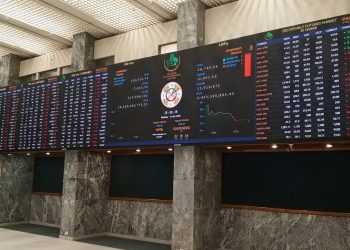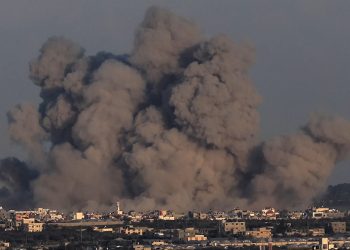The country’s changing political landscape currently features a political upheaval characterized by rhetoric, political wrangling, maneuvering, the desire for harmony with political institutions, and the formation of new political groups, among many elements. These elements are expected to have visible effects in the coming days, either for better or worse.
Recently, there has been fervent preparation by the Pakistan Muslim League-Nawaz (PML-N) for the return of their former Prime Minister and party leader, Nawaz Sharif, to the country. During this time, the Caretaker Interior Minister, Sarfraz Bugti, made a statement implying that Nawaz Sharif’s arrest is inevitable, suggesting that there might be no favorable solution for the party leadership.
Consequently, former Interior Minister Rana Sanaullah and former Information Minister Maryam Aurangzeb, among others, aggressively defended Nawaz Sharif’s return, even though it is clear that for the establishment, their words might not carry much weight.
Meanwhile, Caretaker Prime Minister Anwaar-ul-Haq Kakar also gave statement that transparent elections can be held even without PTI Chairman Imran Khan. The criticism from the public, the Human Rights Commission, and then PTI leaders might have prompted this statement because the date for elections is determined by the Election Commission, not the caretaker Prime Minister. It is the courts’ responsibility to decide whether Imran Khan is eligible to run in the elections or not, whether to imprison him based on evidence or grant him freedom, which can significantly impact his chances of becoming Prime Minister again.
It’s interesting to note that when political leaders resort to statements and counterstatements like this, it tarnishes the praise we receive internationally. Ambassadors from every country stationed in Islamabad consider it their duty to inform their countries about the progress Pakistan is making. During such times, all these positive aspects of Pakistan are overshadowed, which is regrettable.
In the context of elections, the upcoming general elections will have 859 constituencies across the country, with 266 constituencies being national and 593 provincial assembly constituencies. There will be a total of 91,800 polling stations, with 41,800 being regular, 32,508 sensitive, and 17,411 highly sensitive. The Election Commission of Pakistan will deploy 1 million officers and officials to fulfill their duties.
Regarding the formation of new political groups, recently, former Finance Minister Miftah Ismail, former Prime Minister Shahid Khaqan Abbasi, and former Senator Mustafa Nawaz Khokhar announced the formation of a new political group and asked the public questions about it. Just before this, Jehangir Tareen, who had been working diligently on creating a new political force even before the start of Imran Khan’s tenure, has now established the Istehkam-e-Pakistan Party (IPP). Additionally, former Defense Minister Pervez Khattak has also formed a new political entity called the PTI Parliamentarians.
In reality, when people feel that their basic human rights are not being fulfilled, and when decisions against their will are made after they have exercised their right to vote and obtain power, that is when the need to bring forth new leadership from within the people is felt. However, in Pakistan, leadership does not emerge from within the people; rather, the existing political parties, divided and fragmented, have already decided to divide themselves further.
Regarding petroleum products, 90% of petroleum products in Pakistan are imported, while only 10% are produced domestically. In 2014, Pakistan had reserves of 387.49 million barrels of crude oil, which have now declined to 92.91 million barrels in 2023.
This is why when petroleum products become expensive, the government’s response is often that they are expensive in the international market. The dollar is still relatively cheap, with the interbank rate at 288.75 rupees and the open market rate at 290 rupees. However, the prices of petroleum products appear to be skyrocketing, affecting essential commodities as well.
The reality is that the leadership of the Pakistan Muslim League-Nawaz (PML-N) is facing the most criticism because of the economic conditions that have worsened under their rule.
They signed an agreement with the International Monetary Fund (IMF) and claimed to have saved the country from default, but the economic turmoil and compromising Pakistan’s sovereignty during the IMF deal negotiations have had a lasting impact. Under the caretaker government as well, there have been no signs of relief from inflation.



























